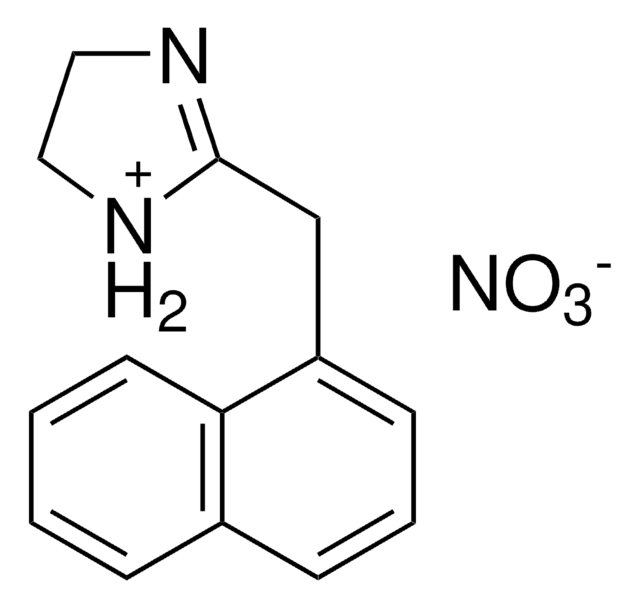900081
Iron oxide (II,III), nanoparticles
30 nm avg. part. size (TEM), 5 mg/mL in toluene
About This Item
Prodotti consigliati
Stato
dispersion
nanoparticles
Livello qualitativo
Concentrazione
5 mg/mL in toluene
Dimens. media delle particelle
30 nm (TEM)
Gruppo funzionale
oleic acid
Cerchi prodotti simili? Visita Guida al confronto tra prodotti
Applicazioni
Note legali
Avvertenze
Danger
Indicazioni di pericolo
Consigli di prudenza
Classi di pericolo
Aquatic Chronic 3 - Asp. Tox. 1 - Flam. Liq. 2 - Repr. 2 - Skin Irrit. 2 - STOT RE 2 - STOT SE 3
Organi bersaglio
Central nervous system
Codice della classe di stoccaggio
3 - Flammable liquids
Classe di pericolosità dell'acqua (WGK)
WGK 3
Punto d’infiammabilità (°F)
41.0 °F
Punto d’infiammabilità (°C)
5 °C
Scegli una delle versioni più recenti:
Certificati d'analisi (COA)
Non trovi la versione di tuo interesse?
Se hai bisogno di una versione specifica, puoi cercare il certificato tramite il numero di lotto.
Possiedi già questo prodotto?
I documenti relativi ai prodotti acquistati recentemente sono disponibili nell’Archivio dei documenti.
Articoli
Professor Hui Mao explores the use of superparamagnetic iron oxide nanoparticles (INOPs) that offer an alternate contrast-enhancing mechanism.
Professor Yadong Yin (University of California Riverside, USA) examines both direct (thermal decomposition, solvothermal, hydrothermal) and indirect (templated) synthesis methods of magnetite nanocrystals and reviews in detail the landscape of these various synthetic methods for magnetite nanocrystal and their applications in magnetic assembly, magnetic hyperthermia, and Li-Ion batteries.
Il team dei nostri ricercatori vanta grande esperienza in tutte le aree della ricerca quali Life Science, scienza dei materiali, sintesi chimica, cromatografia, discipline analitiche, ecc..
Contatta l'Assistenza Tecnica.







